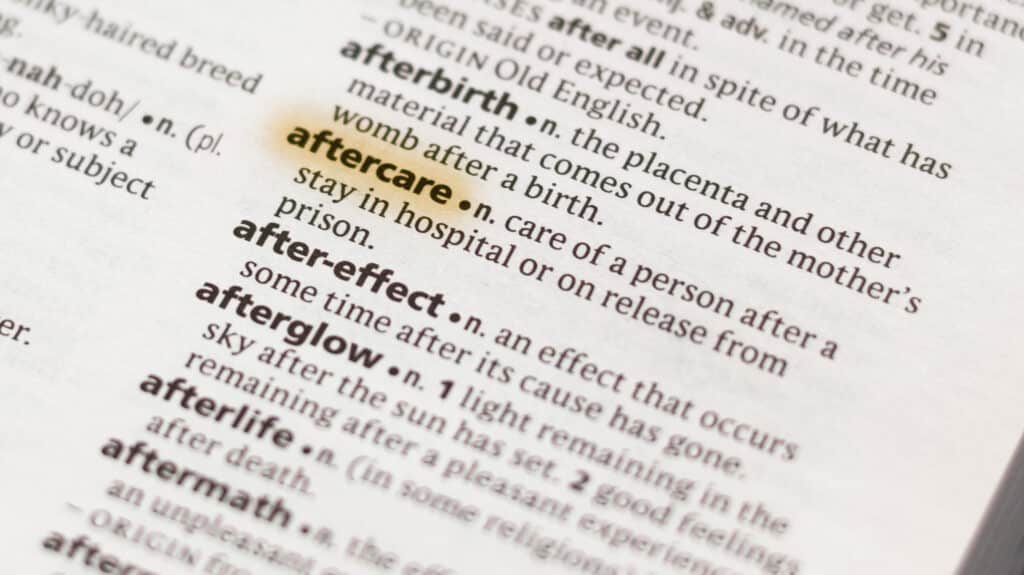For those of you who have completed an inpatient program at a drug rehab center, your recovery journey doesn’t end once your residential treatment is complete. Taking part in aftercare programs allows you to help prevent the risk of relapse.
Once you’ve fully completed an inpatient stay at a treatment facility, consider taking advantage of the long-term recovery options provided by aftercare services. Here are six elements of an effective aftercare plan.
1. Outpatient Treatment Options
Despite completing residential treatment, aftercare options allow you to participate in certain outpatient treatment programs such as an intensive outpatient program (IOP) or a partial hospitalization program (PHP).
Additionally, aftercare allows you to continue participating in treatment options such as cognitive behavioral therapy (CBT).
For those with a dual diagnosis such as a substance use disorder and mental health disorder, continuing to receive therapy or support for both conditions can improve the chances of long-term recovery.
According to the National Institute on Drug Abuse (NIDA), an effective aftercare treatment plan consists of treatment options that place a focus on preventing relapse.
2. A Stable Living Environment
Although you may not remain on-site at an inpatient treatment center 24/7 with an aftercare plan, you have other options to consider. A stable environment is necessary for your recovery journey.
While making the move from inpatient care to aftercare services, you can find a secure and safe living space with sober living homes. Not only can this help with relapse prevention, it allows you to be overseen by an on-site case manager.
3. A Proper Routine
When someone is overwhelmed with drug abuse, daily activities and participating in the addiction recovery process can be difficult. However, an aftercare plan can provide you with a scheduled, proper routine.
While a routine may be slightly different from one another, having a schedule allows you to make the most of your time in treatment recovery. For instance, you can have designated times for therapy, daily activities, and learning and applying new coping strategies.
4. Coping Strategies
An effective aftercare plan allows you to learn coping strategies to manage the emotional and social triggers you can experience. Aftercare can assist in providing you with coping skills and accountability options such as having a sponsor.
Additionally, coping skills can help you move forward in life while maintaining sobriety. When experiencing cravings for drugs or alcohol, coping strategies such as learning about triggers can be helpful.
Other coping skills may include meditation, journaling, and forms of mindful exercise such as yoga.
5. A Support Network
It’s important to have loved ones, family members, or peer support in life, especially during the recovery process. To assist, aftercare plans offer support groups and group therapy.
If you have a strong support system at home, consider family therapy and other options which allow your support network to take part in aftercare recovery.
In fact, according to the Substance Abuse and Mental Health Services Administration (SAMHSA), having a sense of community throughout aftercare is a major aspect of recovery.
6. Continued Treatment Services
One of the primary benefits of continuing treatment with aftercare is maintaining sobriety. With ongoing therapy, interventions, and follow-ups with your healthcare provider, you can better adjust to life without drugs or alcohol.
With aftercare, you can check-in with your doctor regarding your progress. In addition to this, you can take part in 12-step programs such as Narcotics Anonymous (NA) or Alcoholics Anonymous (AA).
Find Substance Abuse Treatment Today
If you or a loved one are struggling with alcohol or drug abuse, you can find a range of outpatient treatment options when you consider Northeast Addictions Treatment Center.
At our rehab facility, we have a team of healthcare professionals to assist you during early recovery by offering options such as step-down outpatient care, behavioral health practices, and aftercare resources.
Contact us today to learn more about our treatment plans.
Keep Reading:
Sources:
- National Institute on Drug Abuse – Can addiction be treated successfully?
- National Institute on Drug Abuse – Recovery
- Substance Abuse and Mental Health Services Administration – Recovery and Recovery Support
- Substance Abuse and Mental Health Services Administration – Recovery Support Tools and Resources

